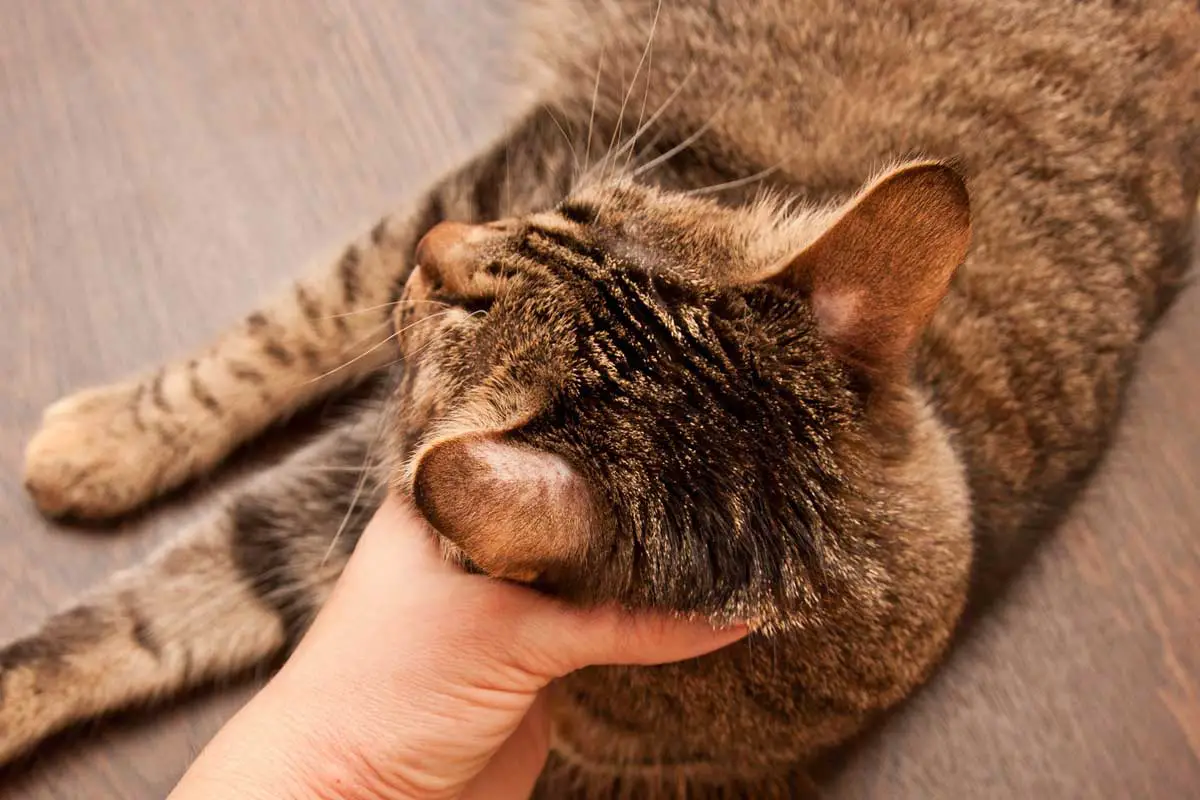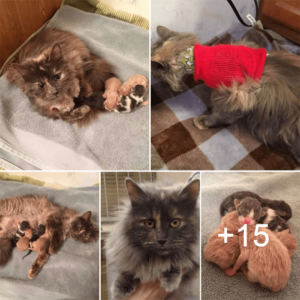Ringworm is a common fungal infection that can affect cats of all ages, breeds, and genders.
This disease is not caused by worms but by a group of fungi known as dermatophytes.
This infection can be transmitted to humans, so it is important to take necessary precautions when dealing with a cat that has ringworm.

What Is Ringworm?
Ringworm is a common fungal infection that can affect cats, humans, and other animals.
Despite its name, ringworm is not caused by a worm, but rather by a group of fungi called dermatophytes. These fungi can live on the skin, hair, and nails of infected animals and humans, causing a range of symptoms including skin lesions, itching, and hair loss.
Ringworm is highly contagious and can spread easily between animals and people, so it is important to take steps to prevent and treat the infection.
Signs of Ringworm
The signs of ringworm in cats can vary and may not always be obvious.
Some cats may not show any signs at all, while others may have a mild or severe case.
The following are some common signs of ringworm in cats:
Patchy hair loss: The most common sign of ringworm in cats is patchy hair loss. The affected areas may be scaly or crusty and may appear red or irritated.
Itchy skin: Cats with ringworm may experience itching, which can cause them to scratch excessively.
Skin lesions: Ringworm can cause circular, raised lesions on a cat’s skin that can be scaly and may be accompanied by hair loss.
Dandruff: Cats with ringworm may have dandruff or flaky skin.
Deformed claws: In severe cases, ringworm can cause the claws to become deformed or misshapen.
Causes of Ringworm
Ringworm in cats is caused by a fungal infection. The fungus responsible for causing ringworm is called Microsporum canis, and it can be easily spread from one cat to another or from other infected animals such as dogs, rabbits, and rodents.
Cats that spend time outdoors or in crowded environments like animal shelters or boarding facilities are more susceptible to contracting ringworm. Poor nutrition, stress, and other underlying health conditions can also increase a cat’s vulnerability to this fungal infection.
It’s important to note that ringworm is highly contagious and can even be transmitted to humans, especially to those with weakened immune systems.
Treatment of Ringworm in Cat
Get a diagnosis from your veterinarian
If you suspect that your cat has ringworm, it’s important to get a proper diagnosis from your veterinarian. They will perform a physical exam and may use a special lamp called a Wood’s lamp to help detect the presence of ringworm.
Isolate the infected cat
Since ringworm is highly contagious, it’s important to isolate the infected cat to prevent the spread of the infection to other animals or humans. This means keeping them in a separate room or area of the house.
Clean and disinfect
To prevent the spread of ringworm, it’s important to thoroughly clean and disinfect any areas where your cat has been. Use a disinfectant that is effective against ringworm, such as bleach diluted in water.
Treatment options
There are several treatment options for ringworm in cats, including topical and oral medications. Your veterinarian may prescribe a medicated shampoo or cream to be applied to the affected area, or they may recommend oral medications. Treatment typically lasts for several weeks to a few months.
Monitor progress
Keep an eye on your cat’s progress during treatment. The infected area should start to improve within a few weeks, and you should continue treatment for at least two weeks after the symptoms have cleared up to ensure that the infection is fully eradicated.
Follow up with your veterinarian
Your veterinarian will likely want to schedule follow-up appointments to monitor your cat’s progress and make sure that the infection is completely gone. Be sure to keep all scheduled appointments and follow their recommendations for ongoing care.
By following these steps and working closely with your veterinarian, you can effectively treat ringworm in your cat and prevent the spread of the infection to other pets or people in your household.
Prevention of Ringworm in Cats
Preventing ringworm in cats involves maintaining good hygiene practices and avoiding contact with infected animals. Here are some tips for preventing ringworm in cats:
Wash your hands frequently when handling cats.
Regularly clean and disinfect cat bedding, litter boxes, and other items that come in contact with your cat.
Keep your cat’s living area clean and free of debris.
Avoid contact with stray or feral cats.
Keep your cat’s immune system healthy by providing a nutritious diet and regular exercise.
Conclusion
Ringworm is a common fungal infection in cats that can be easily treated if detected early.
By practicing good hygiene and taking preventative measures, you can help protect your cat and yourself from this infection.





